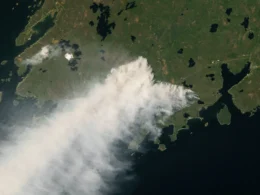The United Nations Climate Change Conference (COP29) opened on November 11 in Baku, Azerbaijan, a nation where oil and gas revenues account for a staggering 92% of exports. This year’s conference takes place in a country with deep historical ties to fossil fuels, home to the world’s first oil wells in the 1840s. The choice of Azerbaijan, a petrostate led by President Ilham Aliyev—a leader with a complex record on human rights and democracy—has drawn criticism about the UN’s ability to uphold climate commitments and justice.
Conference president Mukhtar Babayev, Azerbaijan’s ecology and natural resources minister and a former executive at the State Oil Company of Azerbaijan, now faces questions about whether the nation’s leadership in COP29 will prioritise climate progress or continue fostering fossil fuel interests. Recent findings by NGO Global Witness revealed that COP officials, including CEO Elnur Soltanov, were filmed discussing fossil fuel deals, raising concerns about Azerbaijan’s intentions for the summit.
Human rights concerns loom large. The government under President Aliyev, who succeeded his father Heydar Aliyev in 2003, has been widely criticised for limiting civil liberties, curtailing press freedom, and quashing dissent. Freedom House assigns Azerbaijan a freedom score of just 7 out of 100, significantly lower than the UAE’s score of 18. These criticisms are compounded by Azerbaijan’s recent conflict in Nagorno-Karabakh, which the European Parliament has condemned as ethnic cleansing following the displacement of 136,000 ethnic Armenians from the region. Aliyev’s administration now envisions turning the contested area into a “green energy zone.”
Azerbaijan has pledged commitment to a “green agenda,” recently inaugurating its first large-scale solar power plant. However, Aliyev’s statements celebrating Azerbaijan’s oil as a “gift from God” suggest that the country’s shift towards renewables may simply enable greater gas exports rather than a reduction in fossil fuel dependency.
COP29’s ambitious agenda includes establishing a climate fund to support developing nations, funded by $1 billion from fossil fuel producers. Babayev has framed this as a bridge-building initiative between East and West and the Global North and South. However, climate activists are skeptical, with Pacific Climate Warrior Joseph Zane Sikulu calling it a form of “greenwashing.” He warned, “We have neither the time nor the patience for more scams or games of smoke and mirrors like your greenwashing fund.”
With the world’s climate challenges mounting, COP29 faces pressure to show meaningful progress, even as its host country’s economic and political interests cast a shadow over the proceedings.





















